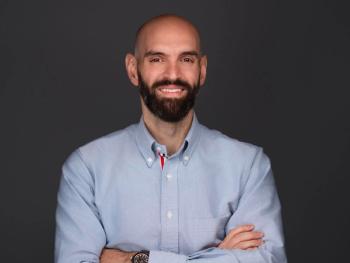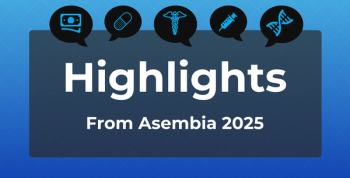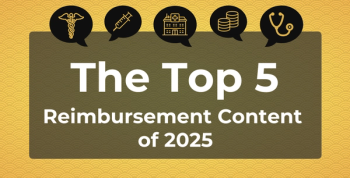
Dr Barbara McAneny on the Problems with Physician Risk in the OCM
Barbara McAneny, MD, CEO of New Mexico Oncology Hematology Consultants, discusses the issues with placing risk on oncologists as they work to provide quality care to patients.
Barbara McAneny, MD, CEO of New Mexico Oncology Hematology Consultants and former president of the American Medical Association, discusses the issues with placing risk on oncologists as they work to provide quality care to patients in alternative payment models like the OCM.
Transcript
Payment reform generally and the OCM specifically did not contemplate practices taking on risk in the middle of a pandemic. Now that the OCM has been extended, what is the next best step to keep value-based care progressing during these times?
Well, I think the basic flaw is risk itself. I divide risks into 2 kinds of risk. One is the actuarial risk if you have a bunch of patients walk into your practice, more than your risk model predicts, who are on a biologic for an unrelated non-oncologic disease—for psoriasis, say—or you have people who have really severe comorbidities that require a lot of expensive therapies. If you have people who have certain characteristics of their cancer—the ones who maybe have metastatic colon cancer and have peritoneal metastasis and will have 3 or 4 hospitalizations and surgeries for bowel obstruction, as opposed to the ones who just have liver metastasis—then suddenly, you will discover that you can't hit those targets. So that's actuarial risk. That's who walks into your office, and you have no control over that.
The second issue that I think we have to look at is we have physicians who know that “if I use the new biologic, that is a very expensive, but amazingly effective therapy, then I will not hit my target.” If you put a physician in a place where doing the right thing for a patient hurts their practice, that is a flawed model. If you have someone see a patient who comes in and has multiple comorbidities and is already on a biologic and you say, “Well, the smart thing for me to do in my practice, is to send this patient to my competitor so that they take the hit on OCM,” then that is a flawed model.
We do not want to penalize doctors for taking care of sick people. It's what we should be rewarded for doing. So that actuarial model, to me, is a problem. The only way I would want to take risk is if it is transactional risk. If I know that I have an accurate target price—the target price for taking care of this person with metastatic colon cancer with a bunch of peritoneal metastasis is X—and I can do better and go under X, then that test how well I manage that patient. But we should not be penalized for the drugs, and the overwhelming factor in OCM that caused people to miss their target was drug price. I hate to tell CMS, but the manufacturers really don't care what I think of their opening price. And they are not going to give me the drug at a less expensive price because I asked them to—they just don't. So we need to be realistic as we develop more alternative payment models. On the other hand, we have to [develop them].
Fee-for-service is failing oncologists, because we provide a lot of services for which there are no fees. And so we have to have a better way to pay for what we really do instead of paying for E&M visits, and chemotherapy drug margin. The margin is shrinking, we need different revenue streams to keep us whole. So I think it behooves us to really work hard to come up with value-based processes that will pay us for what we do for what we know for our expertise for our management of the patients, and get rid of the idea that we should be at risk when things go wrong.
And with the exception of some of the larger hospitals, we don't have reserves sitting there in the bank to cover us for a bad year. So my fear, if we continue to ask physicians to take actuarial risk for the patients they serve, is that every year we'll lose a few practices to bankruptcy. And then the next year we'll lose a few more, and in the next year we'll lose a few more. “It's just a few practices,” I've heard them say, “ They overall will be good.” But over time, we will pull away at the infrastructure that we have built in this country to deliver cancer care, and that is a problem.
Newsletter
Stay ahead of policy, cost, and value—subscribe to AJMC for expert insights at the intersection of clinical care and health economics.









